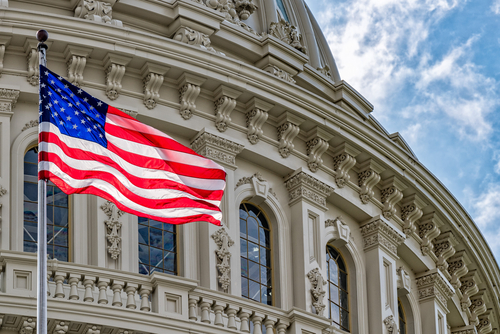
With a vote of 350-80, the National Defense Authorization Act (NDAA) for Fiscal Year 2023 (H.R. 7776) advanced out of the House last week, setting it up for further debate in the Senate.
“For the sixty-second consecutive year, Members of Congress have crossed party lines to deliver a defense bill that benefits those in uniform and advances the American people’s national security priorities,” said U.S. Rep. Adam Smith (D-WA), chairman of the House Armed Services Committee. “In the process, we’ve sent a powerful, bipartisan message to our allies and partners, global competitors, and the American people: democracy works and is essential to meeting the challenges of our time.”
This year’s bill included several benefits for servicemembers, including a 4.6 percent pay increase, increased maximum allowable income for receiving the Basic Needs Allowance, and added funds to the Basic Allowance for Housing. It also incorporated nods to climate change and efforts to improve energy resilience across the Department of Defense.
“This year’s NDAA reflects our enduring belief that people are the heart of America’s defense; investing in the foundation of our strengths here at home keeps us competitive abroad,” Smith said. “The bill supports the largest pay raise since 2007 for service members, authorizes historic funding to the Historically Black Colleges and Universities driving research in science and technology, and sustains America’s innovation edge. It also expands cooperation with key allies and partners that share our values and ensures our national security policies align with our priorities, taking essential steps to address civilian harm.”
In the case of civilian harm, this included authorization of $25 million for the Civilian Harm Mitigation and Response Action Plan, as well as the extension of a global ex-gratia authority for 10 years. This means the U.S. would be required to make payments for damage, personal injury, or death to a civilian inadvertently harmed by U.S. use of force.
Among other things, the legislation also would provide $138.9 billion in research and development investments for national security and more than $131.7 million in research at Historically Black Colleges and Universities. In all, the NDAA calls for $847.3 billion.




